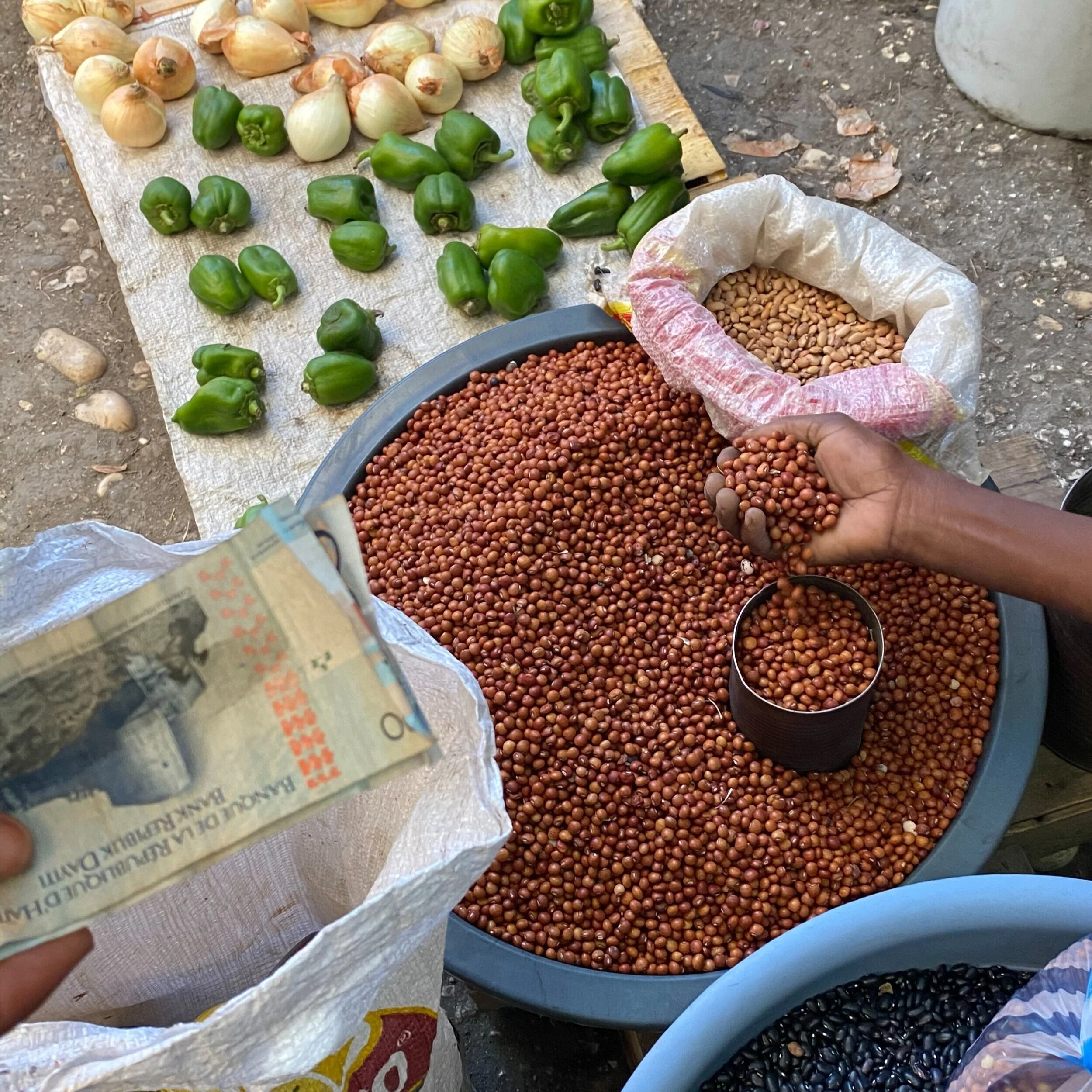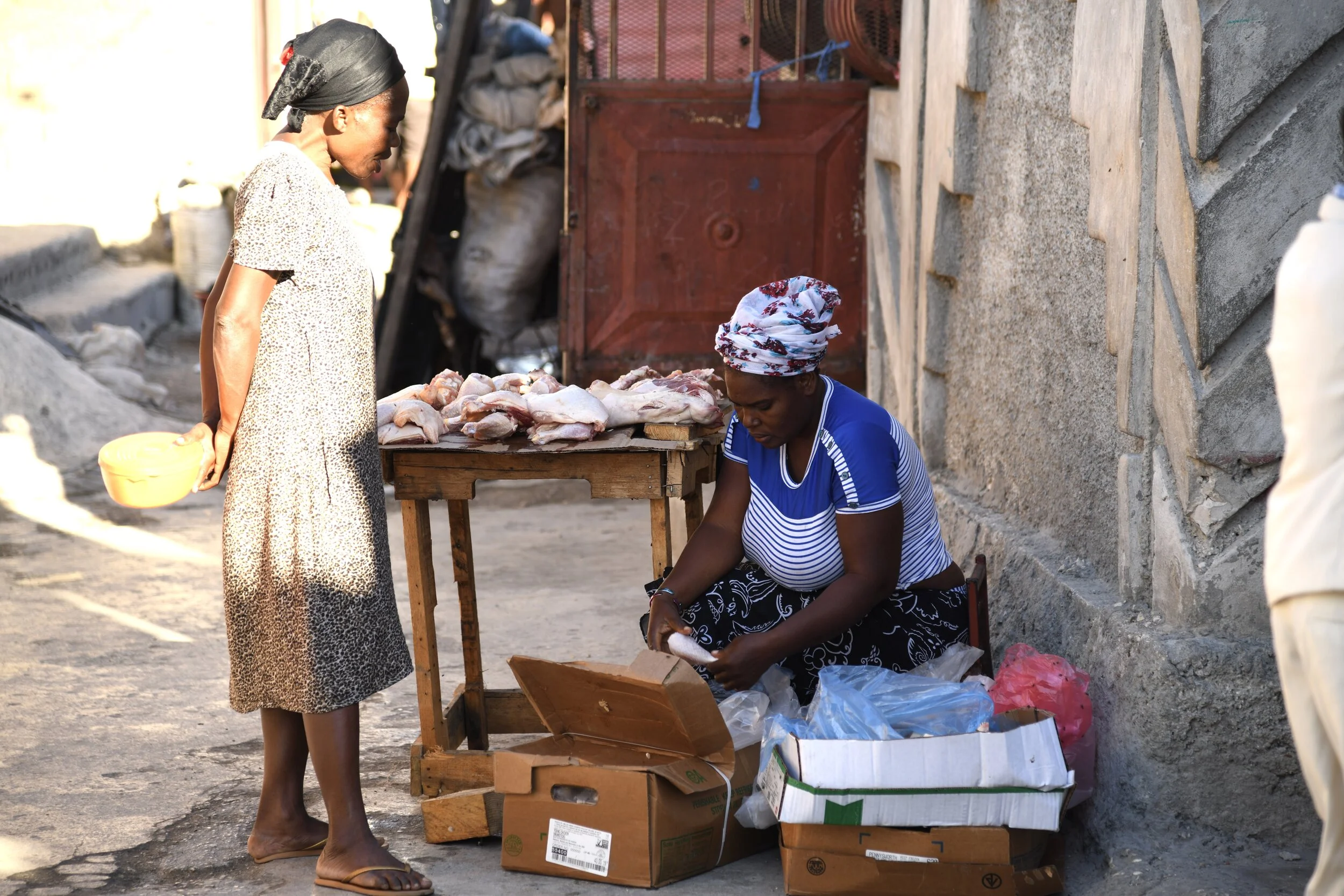Most Food Shopping in Haiti Happens Outside
Haitians don’t get food from a grocery store like Americans do. Instead, they shop local markets for fresh food.
In Haiti, supermarkets like the ones in developed countries exist, but they are expensive. Only wealthier people shop at supermarkets. Most Haitians shop for food and necessities at open-air street markets. You can find almost everything you need at open-air markets from fresh fruits, vegetables, fish, rice, and beans to clothing, books, toys, and medicine. At these markets, you get a glimpse of what daily life is like for the vast majority of Haitians who are not part of the tiny, wealthy elite.
At an open-air market, men, women, and children carry boxes and baskets on their heads filled with items such as plantains, coconuts, or shoes. The atmosphere is hectic, with sellers eager to sell and buyers looking for the best quality at the lowest price. Most Haitians live on a tight budget, with 60 percent of the population getting by on the equivalent of two U.S. dollars per day, according to the World Bank.
In addition to food, open-air markets are where Haitians buy clothing, which is often imported from the United States’ used market. This used clothing is called pepe, and many Haitians enjoy digging through pepe to find popular American brands.
Yet inflation has hit Haiti hard over the past few years, and most Haitians are struggling even more than in the past, whether they are selling items at the markets or trying to buy enough food with what little money they have. Their currency is the Haitian gourde. About 64 gourdes are equal to one U.S. dollar, though the currency’s value against the dollar fluctuates wildly due to Haiti’s instability. Political unrest, government corruption, fuel shortages, and natural disasters have made life hard for Haitians, most of whom hold informal jobs, if they have a job at all. Haiti has not recovered from the massive earthquake in 2010 that destroyed much of the country’s infrastructure. There is a housing shortage and widespread homelessness and poverty.


